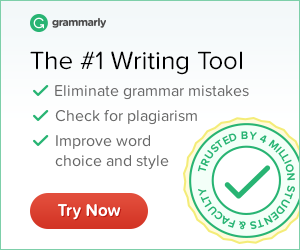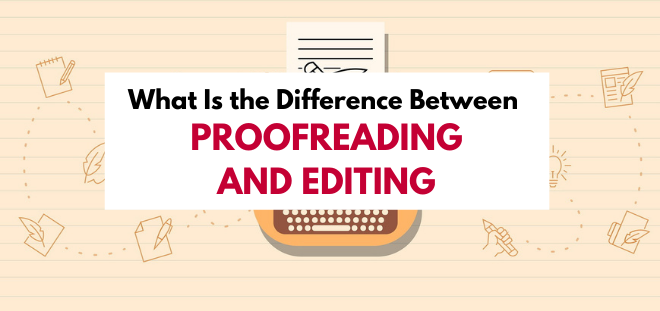What is the difference between proofreading and editing? Even editors have trouble with this one.
Many people believe that proofreading and editing are the same thing, only to become unhappy when an editor returns a page that has been proofread but not edited. Please read on and allow this blog to inform you of the differences between the two, so that when you place an editing order, you know which to request.
What Is the Difference Between Proofreading and Editing?
Let's start with a discussion of what proofreading actually is.
A proof itself is a typeset version of a document, for example, a novel, or a dissertation. The idea behind proofreading is for the proofreader to find any typos or problems (such as computer errors in spacing, etc.) with the document before it is printed.
Proofreading often involves examining a small portion of text that is typeset against an original before publication; thereby, proofreading could be differentiated by the explanation that a proofreader works with two documents at once. While this is true, as it is often a proofreader's job to examine an academic piece for adherence to a specific style guide, such as APA or MLA, proofreading often has its own cycles/language. More on that in a minute…
While it has been argued that editing also refers to finding typos and using style guides, editing involves one major factor that proofreading does not: content. In addition to checking for grammar, spelling, punctuation, and formatting issues, and editor checks the text for content.

For example, in a novel, the editor will ensure continuity through the chapters.
- Are the pertinent questions answered?
- Does anything seem amiss?
- Is the dialogue of the characters believable/realistic?
In an academic document, such as a master's thesis or a dissertation, the editing takes on a more factual check:
- Is there a hypothesis? If so, is it proven or not proven, and why?
- Is the main idea of the paper supported, and is it restated in the conclusion, tying the whole piece together?
- Do the figures and tables included by the author make sense in the context in which they were provided?
Let's return to proofreading for a moment. Previously, I stated that proofreading had cycles and a language all of its own. Proofreaders tend to work on documents in different cycles, and this can be specific to the amount of times a particular work is proofread, or it can be a reference to the departments of a company or organization.
For example, a document marked “revise” might be headed for the publication department.
Now, it can be argued that they (proofreading and editing) are similar. I mean, isn't the purpose of editing to ensure an accurate, error-free document that can be published with pride by an author or company?
It certainly is. However, proofreaders typically work on a document just before it goes to print, while an editor can work with an author over a long period of time so that the document is perfected. While a proofreader will remove any typos, an editor will make suggestions on where an author can elaborate/elucidate a point.
The wonderful thing about both proofreading and editing is that while they are indeed different (despite popular opinion), they are both necessary to the writing process. A document always should be examined for content and then examined for errors, thus ensuring an error-free publication of which the author can be proud. There can never be too many sets of eyes on a document before publication, and the professional editors and proofreaders at Professional Book Editing Services are available to help you at any time!
RESOURCES FOR PROOFREADERS
Taking a good proofreading course may help you secure some proofreading jobs. I recommend checking out Caitlin’s FREE Introductory Workshop on How to Become a Proofreader.
Check out Caitlin Pyle’s FREE Introductory Workshop
to find out how to become a proofreader!
Related Posts:
- 20 Proofreading Jobs for Beginners
- How to Get Freelance Proofreading Jobs
- How to Become an Online Proofreader Today
- What is the Difference Between Proofreading and Editing
- Skills You Need to Work from Home as a Proofreader
- What Does a Proofreader Actually Do?
- How to Work from Home Proofreading
- Do You Want to Be a Proofreader? 12 Tips to Improve Your Proofreading Skills a Better Proofreader
- Remote Editing and Proofreading Jobs at Scribendi
- Listing of popular freelance sites.
Ms. Todd is an award-winning professional editor, published writer and marketing consultant whose passion is to help others create a letter-perfect presentation in their writing. She consults for international editing services and websites and provides advisory and consulting services worldwide to corporations, including firstediting.com.
Disclaimer: If you purchase a product through a referral link, I will get a commission at NO extra cost to you and it helps me to keep providing you with quality information.


